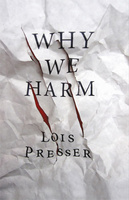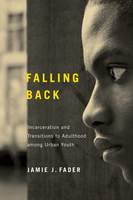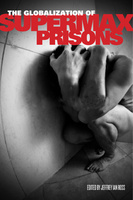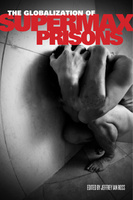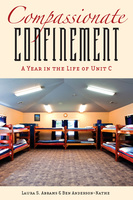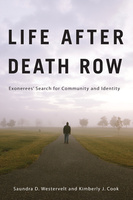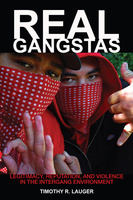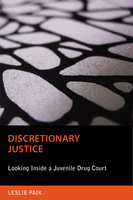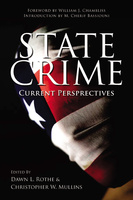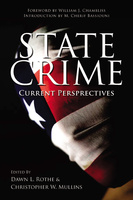Tough on Hate?
The Cultural Politics of Hate Crimes
Tough on Hate is the first book to examine the cultural politics of hate crimes both within and beyond the law. Drawing on a wide range of sources, including personal interviews, unarchived documents, television news broadcasts, legislative debates, and presidential speeches, the book challenges readers to reconsider their understanding of hate crimes and raises startling questions about the trajectory of civil and minority rights.
Tough on Hate?
The Cultural Politics of Hate Crimes
Tough on Hate is the first book to examine the cultural politics of hate crimes both within and beyond the law. Drawing on a wide range of sources, including personal interviews, unarchived documents, television news broadcasts, legislative debates, and presidential speeches, the book challenges readers to reconsider their understanding of hate crimes and raises startling questions about the trajectory of civil and minority rights.
Why We Harm
This timely book scrutinizes accounts of acts as diverse as genocide, environmental degradation, war, torture, terrorism, homicide, rape, and meat-eating in order to develop an original theoretical framework with which to consider harmful actions and their causes. Chapter by chapter, it examines statements made by perpetrators of a wide variety of harmful actions, identifying the logics they share that motivate, legitimize, and sustain them and mapping out strategies for reducing harm.
Falling Back
Incarceration and Transitions to Adulthood among Urban Youth
Falling Back documents the transition to adulthood for young inner-city men of color who have, by the age of eighteen, already been imprisoned. It is based on over three years of ethnographic research with black and Latino males on the cusp of adulthood and incarcerated at a rural reform school. The book portrays the complexities of human decision-making as these men strove to “fall back,” or avoid reoffending and become productive adults.
The Globalization of Supermax Prisons
“Supermax” prisons are typically reserved for convicted political criminals such as terrorists and spies and for other inmates who are considered to pose a serious ongoing threat to the wider community, to the security of correctional institutions, or to the safety of the people within. The Globalization of Supermax Prisons examines why nine prominent advanced industrialized countries have adopted the supermax prototype, paying particular attention to the economic, social, and political processes that have affected each nation.
The Globalization of Supermax Prisons
“Supermax” prisons are typically reserved for convicted political criminals such as terrorists and spies and for other inmates who are considered to pose a serious ongoing threat to the wider community, to the security of correctional institutions, or to the safety of the people within. The Globalization of Supermax Prisons examines why nine prominent advanced industrialized countries have adopted the supermax prototype, paying particular attention to the economic, social, and political processes that have affected each nation.
Compassionate Confinement
A Year in the Life of Unit C
This ethnographic text brings to light the challenges and complexities inherent in the U.S. system of juvenile corrections. Building on over a year of field work at a boys’ residential facility, the authors provide a context for contemporary institutions and highlight some of the system’s most troubling tensions. The book provides narratives, observations, case examples, and recommendations for rehabilitating the system. A detailed appendix on conducting field research is useful for individuals in the social sciences and helping professions.
Women on Ice
Methamphetamine Use among Suburban Women
Women on Ice is the first book to study exclusively the lives of women who use methamphetamine (ice, speed, crystal, shards) and the effects of its use on their families. In-depth interviews with women in the suburban counties of one of the largest metropolitan areas in the U.S. chronicle the details of their initiation into methamphetamine, the turning points into problematic drug use, and, for a few, their escape from lives veering out of control.
Life after Death Row
Exonerees' Search for Community and Identity
Life after Death Row examines the post-incarceration struggles of individuals who have been wrongly convicted of capital crimes, sentenced to death, and subsequently exonerated. Drawing upon research on trauma, recovery, coping, and stigma, the authors weave a nuanced fabric of grief, loss, resilience, hope, despair, and meaning to provide the richest account to date of the struggles faced by people striving to reclaim their lives in contemporary American society after years of wrongful incarceration.
Real Gangstas
Legitimacy, Reputation, and Violence in the Intergang Environment
Real Gangstas relies on the tradition of urban ethnography to provide a unique and intimate look at the lives of street gang members in Indianapolis, IN. For eighteen months, Timothy R. Lauger interviewed and observed a mix of fifty-five gang members, former gang members, and non-gang street offenders, many from the “Down for Whatever Boyz.” Through this research, Lauger is able to understand and explain the reasons for gang membership, including a chaotic family life, poverty, and the need for violent self-assertion in order to foster the creation of a personal identity.



